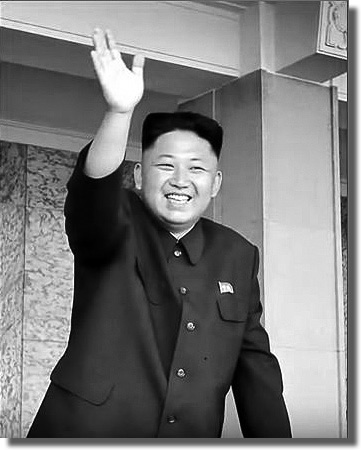It has been 60 years since the end of the Korean War and much has changed in South Korea and the greater world. However, while the rest of us move forward, North Korea remains a failed state run by a family of international criminals. The so-called government of North Korea is illegitimate, corrupt, and rules with nothing less than indescriminate fear.
Its authority is absolute, only because it’s based on brutality. If anyone dare challenge the status quo, both they and their entire family could easily find themselves imprisoned in North Korea’s system of labour camps, hidden in isolated locations throughout the country; or worse, face a quick death by firing squad.
The successor to the leadership of North Korea is 29-year-old Kim Jong-un, who entered his tenure in 2011 after the death of his father Kim Jong-il. No one is really sure how old Kim Jong-un is, but since taking power, he has used missile launches and threats of building a nuclear offensive capability, which would further destabilize the region, in an attempt to blackmail his way out of sanctions imposed by the United Nations.
The new U.N. sanctions initiated this past May cover a wide variety of goods and services which may be useful to North Korea’s prohibited weapons program. Furthermore, the sanctions impose tight financial restrictions that include the movement of large sums of money. Since the end of the Korean War in 1957, China has been North Korea’s top ally and main supplier of goods and services. Indeed, China more than any other nation has a direct influence on North Korea.
 North Korea's supreme leader for life: Kim Jong-un
North Korea's supreme leader for life: Kim Jong-un
In my view, China should reconsider its relationship with North Korea on three levels. The first is national interest: Is it in China’s national interest to allow Kim Jong-un to destabilize the region, perhaps drawing them into a wider conflict? The second is economic interests: China has spent much time and money in the third world establishing itself in successful investor partnerships throughout Africa, Asia, and the Americas. However, doing business with a rogue state cannot be popular with potential customers who respect democracy and the rule of law. And lastly, China’s global interests: If China wishes to be a true superpower, it will need to demonstrate how it can support the best interests of world peace and prosperity within international law and the global community.
It simply is not in China’s best interests, nationally, economically or globally, to be affiliated with a brutal state like North Korea. It may be profitable now, but the true value of a good business relationship is trust. As a result, China is in danger of losing face in the world because of its trust and support for Kim Jong-un, notwithstanding the so-called ideological parallels.
Indeed, the consequences of failure to control North Korea could result in a full-scale war. For example, the newly elected Japanese president Shinzo Abe is seeking to amend Japan's constitution to allow his government the use of offensive tactics against aggressors like North Korea. Japan already has the largest navy in the region, and with the re-arming of it strategic forces, will no doubt be accused of aggressive behaviour by anyone who perceives Japan as a threat i.e., North Korea or China.
In reality, the only thing Kim Jong-un is qualified for is dancing Gangnam Style. China has much to lose in the way of reputation by supporting North Korea. Nevertheless, there is still an opportunity for China to save face by keeping Kim Jong-un from threatening hostilities against his neighbours, and encouraging positive change in the regime. Regardless of the differences in ideology, peace benefits everyone.
China’s new General Secretary Xi Jinping appears to be a reasonable and peaceful man. I would hope leaders on all sides understand: in a single moment, because of a political miscalculation, human error or a failure to communicate, everything can quickly escalate—leading the world down another path to war. A few historical examples are: The appeasement of Hitler, the Gulf of Tonkin Incident, Cambodia's Pol Pot, and weapons of mass destruction in Iraq. If history has taught us anything, it is the understanding that one madman in the world—is one madman too many.


